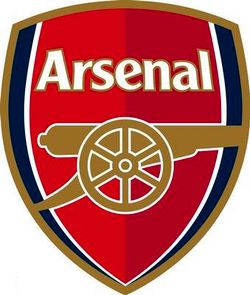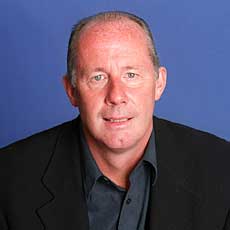With a suitcase full of belongings at his feet, 15-year-old schoolboy Liam Brady stood nervously inside Highbury’s marble halls, day dreaming he would one day stride out of the nearby tunnel onto the hallowed turf as a first team star. The apprehensive young Irishman not only had his bag, but he also had the world at his feet. Blessed with oodles of natural talent, a laser-guided left foot, and a steely determination to make the grade, Brady had every right to picture his name in lights. A decade later, the cultured midfielder was already being regarded as one of the finest players to have ever worn the Arsenal shirt.
Fast forward 38 years and Liam Brady is celebrating his 12th year as Head of Youth Development at the club which gave him his first chance in the game. The young boy from Dublin is now, ironically, the man in charge of helping to make starry-eyed dreams come true for the latest generation of aspiring young footballers at the north London club.
Having already groomed the likes of Ashley Cole, Steve Sidwell, Jermaine Pennant, Justin Hoyte and Cesc Fabregas for first team football under Arsene Wenger, the former Celtic and Brighton manager is now busy moulding the stars of tomorrow at Arsenal’s impressive academy headquarters in Hertfordshire.
In a break from his busy schedule, Adrian Clarke caught up with Liam Brady to quiz him on Arsenal’s youth policy and on what it takes for a young player to make it as a first team star at the Emirates Stadium…
(For the audio link, skip to the end of the interview.)

Hi Liam, what was it that appealed to you most about becoming head of youth development at Arsenal?
In one word, Arsenal! I grew up at the club. It’s been part of me ever since I joined them as a youth player in 1970. There’s no question that Arsenal are a big club, with big facilities and they attract very good players on the back of that, which is attractive to someone in my position. But most of all I remember being a young player at Highbury and they were so good to me, so that’s why I wanted to go back and do the job for them.
Why did you give up on senior management to work in youth football?
I’d been manager at Glasgow Celtic and Brighton but I no longer wanted to be part of that managerial merry-go-round. When I got the job at Arsenal in 1996 I knew that it was a stable job, independent of the first team manager, and that as long as the board were happy and that I could also please Arsene Wenger, I knew I wouldn’t be moving anywhere else.
What kind of state was the Arsenal youth set-up in when you arrived?
Facilities-wise the club wasn’t the best when I arrived. As Arsene Wenger did in convincing the board to buy a new training ground, I in turn pressed the board to agree to let the youth system be part of that new facility. When we lost Highbury, we also lost a tremendous indoor training area which we used a lot for training the kids, so we’ve built a fantastic new facility at Walthamstow that’s ideal. It’s got easy access for parents and their children to get to. It has an all-weather pitch, an indoor area, and also four of five really smashing football pitches on the site too. We are well equipped now.
How big an operation is the Arsenal youth system nowadays?
It’s huge. When I say it’s huge I mean that I employ ten full-time staff, there are between 20 and 30 other people helping me to run it on a part-time basis and we’ve got about 150 boys on our books, from the ages of 8 to 18. We also have many scouts but mainly in London because of the rules and regulations. We don’t have scouts in Manchester or Newcastle and places like that as there is no point as they all have to go to their local clubs these days. However, we do have lots of scouts in London, Scotland, Ireland and around Europe.
What exactly is Arsenal’s youth policy?
We just concentrate on looking for all the things that we believe are vital attributes, and above all else the technical ability of each individual boy. We then try to develop that talent to a point where he is going to be good enough to operate at the top level. They have to be athletic, so we help them with their physical development, he has to be dedicated so we try to give them mentoring and guidance in that respect. A young player has to have the whole package to make it. However, technical ability is far and away the most important aspect we look for in a young player.
How much emphasis is placed on guiding a young player on how to live their lives properly?
We do our utmost to give them guidance and advice on all manner of things, like warning them of what to steer clear of. We advise on all things from key areas like diet to teaching them to be punctual. I am always telling the kids it’s better to be half an hour early than one minute late. This is all done in order to help them advance their careers.

I certainly think the Arsenal Academy is working. Every club has their own way of running their academies, but I am satisfied it’s a success here. We’ve shown through the years that we produce players who are equipped for the first team. We haven’t hit the jackpot though, and by that I mean we haven’t had enough English players in the team. I’m hoping that over the next two or three years that situation will have been addressed because we have a fine crop of young players coming through. If you look at the Premier League and the Championship we must have a squad of players in each division that have come through the Arsenal youth system — and they are all doing very well. The jackpot we are always working towards is getting a player into the Arsenal first team though. If they do that, they are likely to be worth £5-10million pounds and that is a great justification for the work we do.
Arsenal’s Academy is filled with youngsters from all around the world. What do you feel about this?
Signing foreign youngsters at a young age is essential for Arsenal. If we think that there is a special player we can get hold of, like Cesc Fabregas for example, we work tirelessly to make it happen. I believe that with the facilities and structure we have in place, we can attract these players.
Which player has been the biggest success story to come through the Arsenal Academy?
Ashley Cole. It was very satisfying for myself and my colleagues because when we signed him initially he wasn’t one of the more highly rated boys. At 14 or 15 we never thought that Ashley was going to be a superstar and play for England. What he did possess was a real passion to play the game and real dedication for it. He also had the speed and aggression needed and that enabled him to take off once he got into the first team.
How do you see the future of the Arsenal youth academy?
As long as the board and the first team manager gives us the support we deserve to continue with our work I can only see it going from strength to strength. If you lose that support it can be a problem. At Chelsea when Ken Bates was in charge they lost it. He wasn’t interested in youth football and he wasn’t interested in young players, so when Roman Abramovich took over he didn’t have a good youngster there. That example goes to show that if you don’t have the support from up above, things will suffer.
Is Arsene Wenger’s faith in young players a key factor in attracting the best kids?
I certainly believe that, yes. They know they will get a chance if they are good enough, with Arsene Wenger in charge. We will keep on doing what we are doing and see what kind of talent comes through. The most important thing for a professional club like Arsenal is to get the best players. It’s as simple as that. This is why our scouts play such a key role in the club’s success.
Is it harder than it’s ever been for a young player to make it in the mega-rich Premiership?
No, I don’t really believe that. The standard of the Premiership is not out of reach for good young players coming through the academies. If a youngster has sound technical ability and the athleticism to go with it, they can make it in the top flight.
Liam Brady will be working with Giovanni Trappatoni to help Republic of Ireland qualify for the 2010 World Cup.
Liam Brady Video
Liam Brady Interview Audio
[audio:brady_audio.mp3]Soccerlens thanks Adrian Clarke for making this interview possible.
Add Sportslens to your Google News Feed!